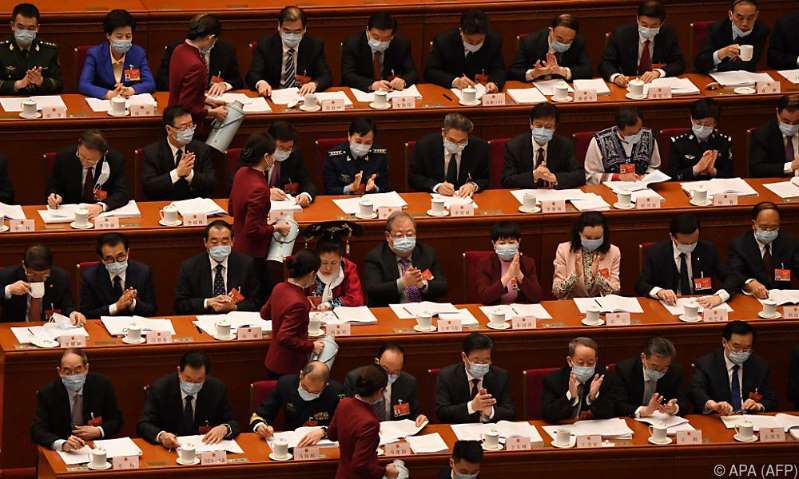At the National People's Congress in Beijing, which began on Friday, China's leadership presented plans for comprehensive electoral reform in the Hong Kong Special Administrative Region. According to this, the election committee, which determines the top government in Hong Kong, is to be changed in such a way that Beijing has even more influence. At its one-week session, the Chinese parliament is also discussing the new five-year plan, which includes heavy investments in research and development.

Image: APA (AFP)
Hong Kong electoral reform is expected to be officially passed in Congress. This is intended to further curtail the influence of the democratic opposition in the Chinese Special Administrative Region. As part of the plans, the Hong Kong elections are likely to be postponed for another year to September 2022, several Chinese media reported.
A spokesman for the People's Congress had previously announced that an “improvement” of the electoral system was necessary to ensure that “patriots” rule Hong Kong. According to media reports, the number of members loyal to Beijing is to be increased significantly in the election committee that determines the leadership of Hong Kong. At the same time, it is expected that the role of the district councils will be further reduced. They have hardly any power anyway, but they exemplify the mood in the population, as they are democratically elected through local elections. In 2019, candidates from the camp of democracy advocates won almost 90 percent of the seats, which amounted to a loss of face for the Beijing-loyal establishment.
After the controversial security law was passed last July against the opposition forces, the change in the electoral system is another blow to the previously liberal system in the formerly autonomously administered British crown colony, which was returned to China in 1997.
Originally, when Hong Kong was handed over to China in 1997, it was promised an autonomy of at least 50 years based on the principle of “one country – two systems”. After mass protests against the government, however, China passed a so-called security law with the stated aim of combating secession, subversion, terrorism and foreign interference. Critics speak of a profound interference with autonomy.
Against the background of growing tensions with the US, India, Taiwan and the controversial South China Sea, China is increasing its military spending by 6.8 percent this year. This means that spending on the military is growing again significantly faster than the overall budget. In the previous year, the increase was 6.6 percent despite the Corona crisis. “The military's strategic capabilities to protect the sovereignty, security and development interests of our country are being strengthened,” said Premier Li Keqiang.
In the controversies surrounding Hong Kong and Taiwan, Prime Minister Li Keqiang issued clear warnings. In his hour-long speech, he spoke out against “interference from outside forces” in Hong Kong. China's leadership will also take decisive action against “separatist activities” in Taiwan that seek independence. Beijing regards the democratic and free island state as part of the People's Republic and threatens to conquer it.
Despite the global recession caused by the corona pandemic, China wants to achieve strong economic growth of more than six percent this year. In order to become more independent from abroad, Prime Minister Li Keqiang underlined the need to give priority to the development of the domestic economy. In-house innovations are also to be promoted more strongly than before in order to reduce technological dependency on the rest of the world.
An important realignment is the concept of “two cycles”, in which domestic circulation is to be promoted. In this way, China wants to make itself more independent in the face of US sanctions and the global crisis. As part of the five-year plan, the strategy is to “expand domestic demand, intensify structural reforms on the supply side and generate new demand with innovation-driven development and high-quality offers,” said Li Keqiang.
Innovation remains at the heart of the modernization offensive. “We will strengthen our science and technology in order to strategically support China's development,” said the premier. Digitization should also be accelerated further. Research and development spending is expected to increase by more than seven percent annually. The share of economic output is expected to climb higher than in the old five-year plan.

